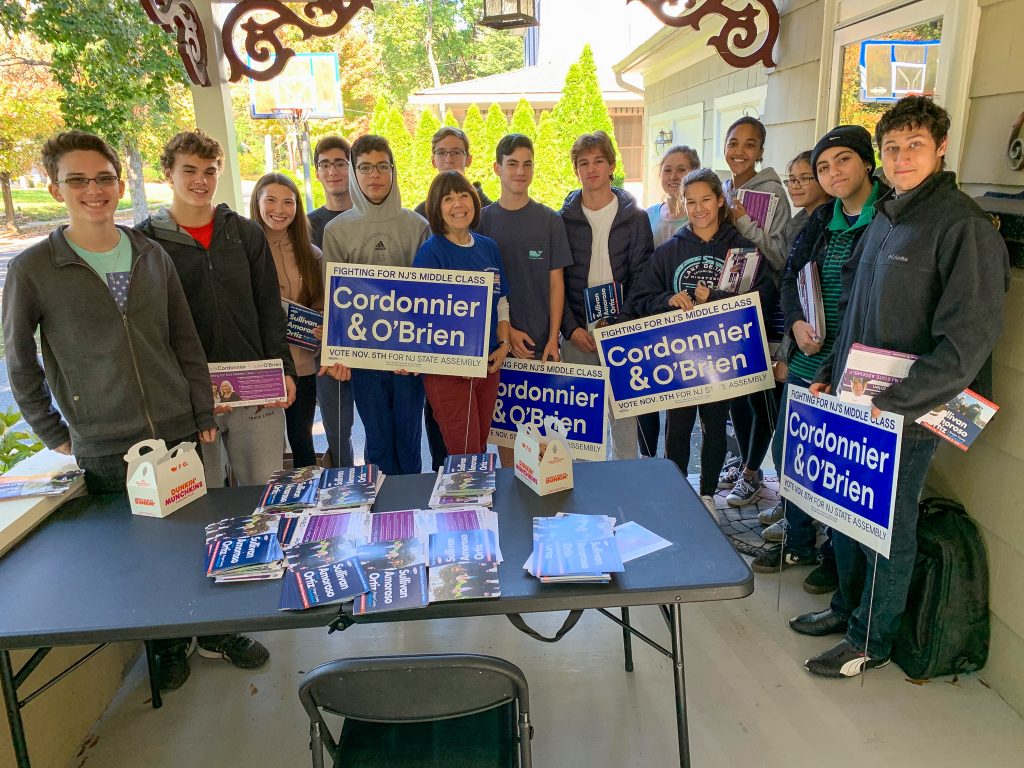Chances are if you live in Ridgewood, you’ve received a knock on your door this October or November. If you weren’t home, you probably found some literature wedged in your doorway.
These were no ordinary ghosters, but actually some of your fellow students volunteering with RHS Democrats. In fact, RHS students came out to canvas in unprecedented numbers. As election season approached, tens of students knocked on thousands of doors. The Saturday before the election, 40+ students from Bergen County knocked on over 2000 doors in Emerson and Ridgewood.
Although it was an off-year election, the race for state assembly in the 39th and 40th districts was predicted to be a close race with canvassers promoting Democrats Cordonnier and O’Brien in District 40 and Birkner and Falotico in District 39. They hoped to flip the traditionally Republican districts to elect Democratic candidates.
So how did this many students get involved in such a local election beyond getting paid? I talked to the three leaders of RHS Dems, Laurence Fine, Aaron Friedman, and Logan Richman for the answer. Friedman described the club as a “hyper-local activist organization”, and Richman postulated that it gives students the opportunity to get an inside look at politics. As young adults finding our place in the world, these institutions feel distant from us, but talking to local candidates and campaign managers puts faces, not just names on our ballots.
RHS Dems strove to establish this relatability beyond canvassing by having Maria Cordonnier, a Democrat running for state assembly from Little Falls, talk to the club. She spoke on her experiences with Anti-Vietnam War protests when she was our age. In the partisan political climate of today, it can be difficult to look beyond political affiliation, but hearing the stories of our representatives in a non-debate setting is refreshing. Cordonnier and the RHS Democrats club as a whole is inspiring students to care about politics on a local scale. It’s about time we looked a little closer at government than just the presidential and midterm elections, given the impact of state policy on our day-to-day lives.
Just as the intimate connections made in campaign offices may motivate students to stay engaged with politics, the hope was that the connections made on doorsteps get voters to the polls. Fine furthered this idea, emphasizing the face-to-face interactions that occur when knocking on doors, suggesting that the act of speaking to the voters reduces extremism and polarization. I agree with Laurence to some extent, but to me the most important impact of all this is the formation of a new, informed generation of voters.
Even those who canvassed purely for the money gained a valuable appreciation for the amount of work that goes into local government, as well as how low interest in the general community is regarding such elections. As much as the chaos of presidential debates and the public spectacle of it all draws us in, it is important not to forget about the locals.
It’s a wonderful thing that this ideological change is starting here at RHS, and maybe we are living up to the classic “tradition of excellence” after all.
Alexandra Jerdee
Opinion Columnist
Graphic: Laurence Fine

